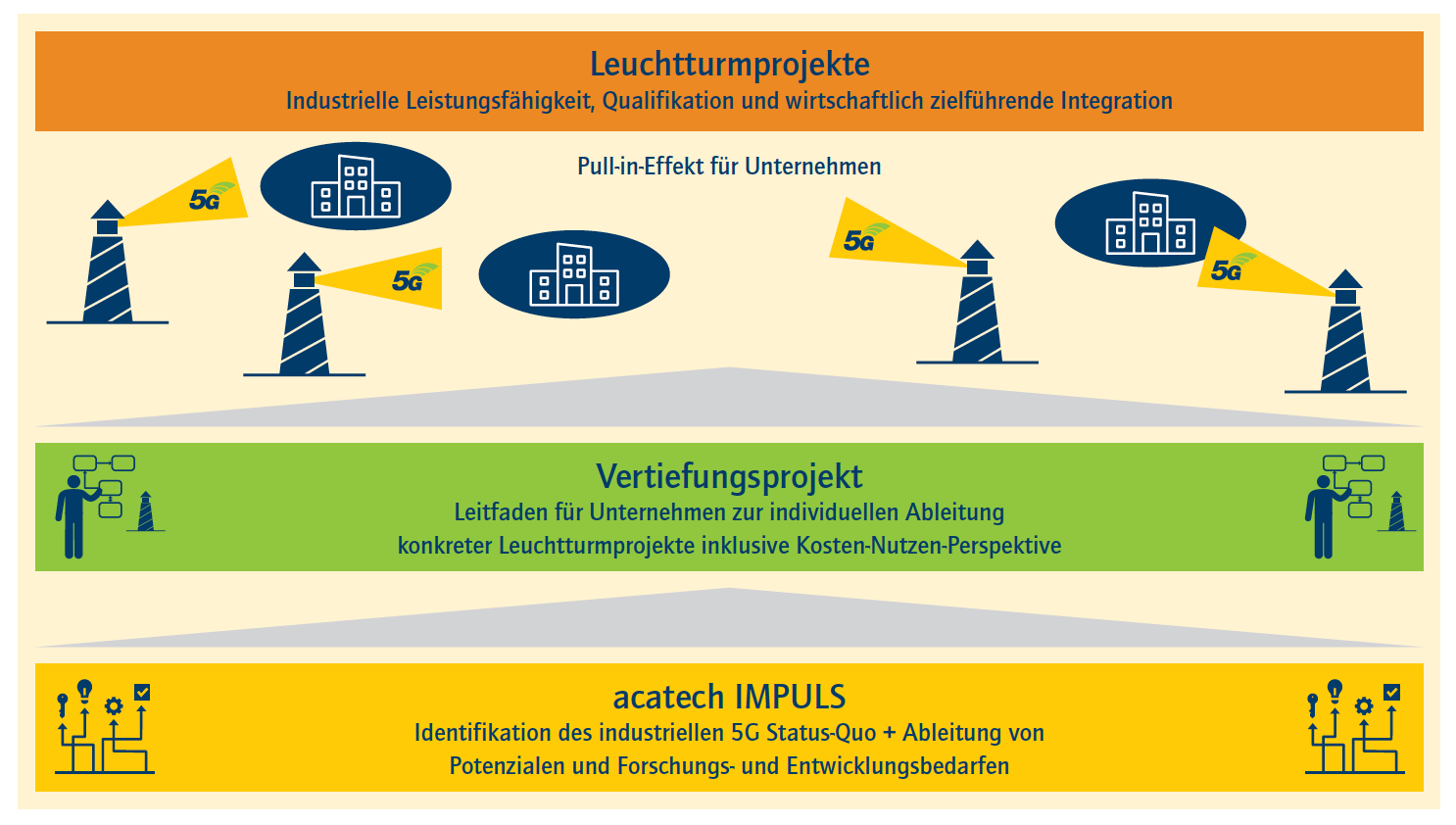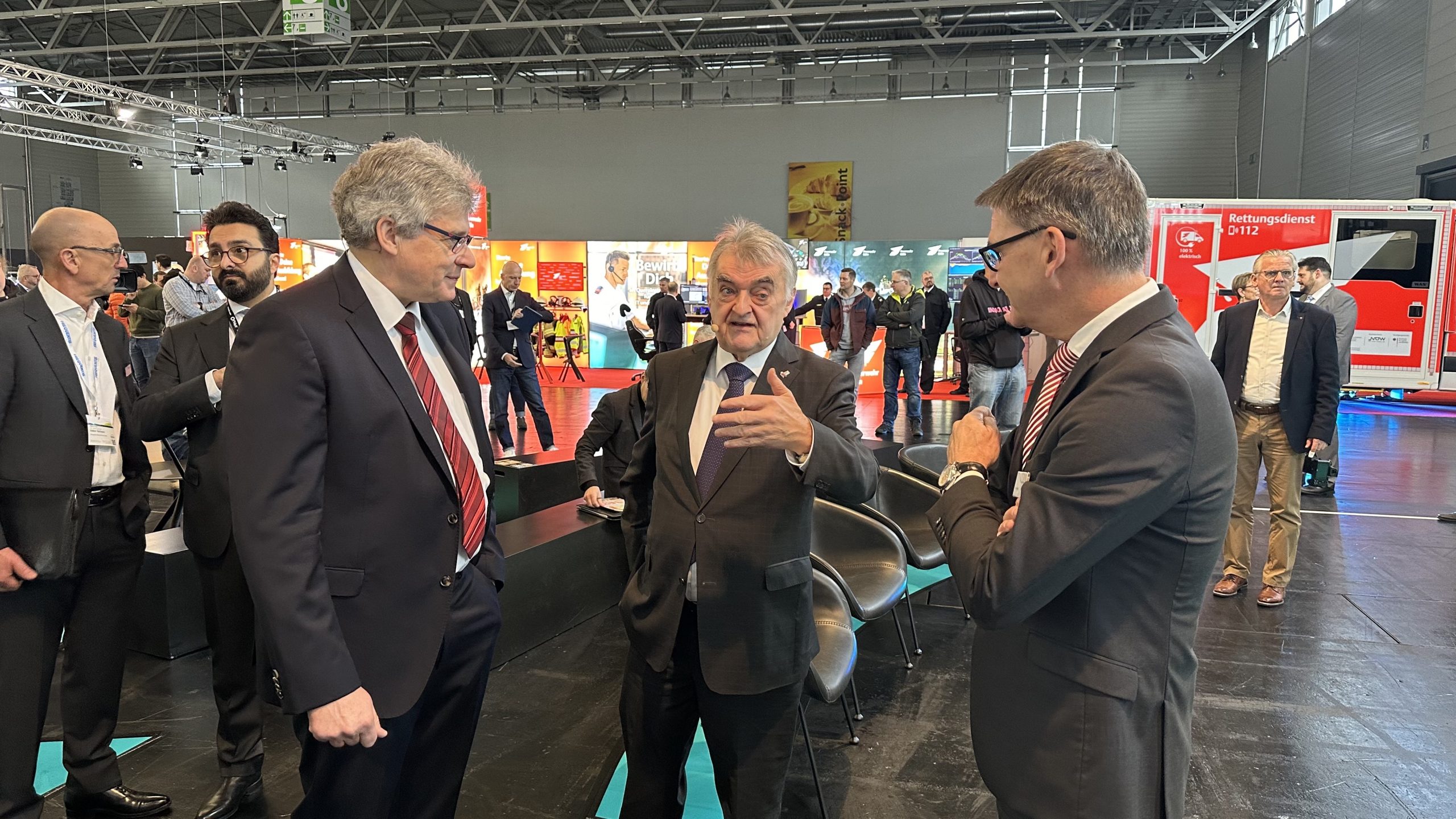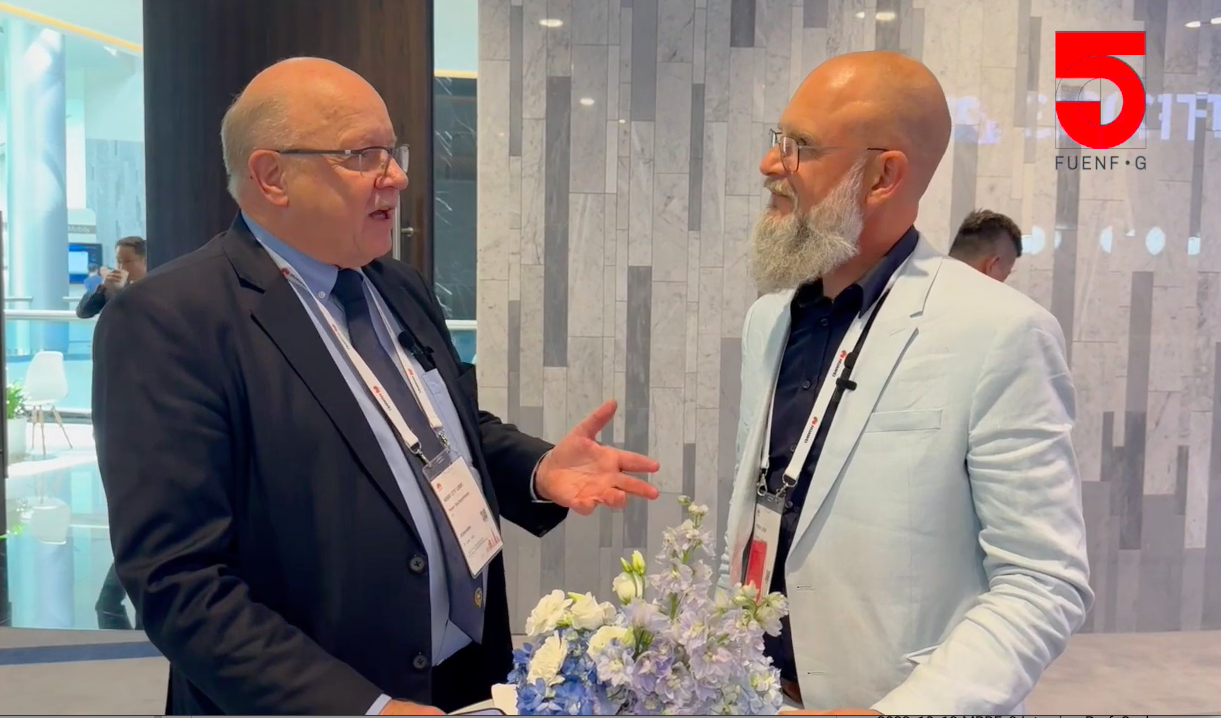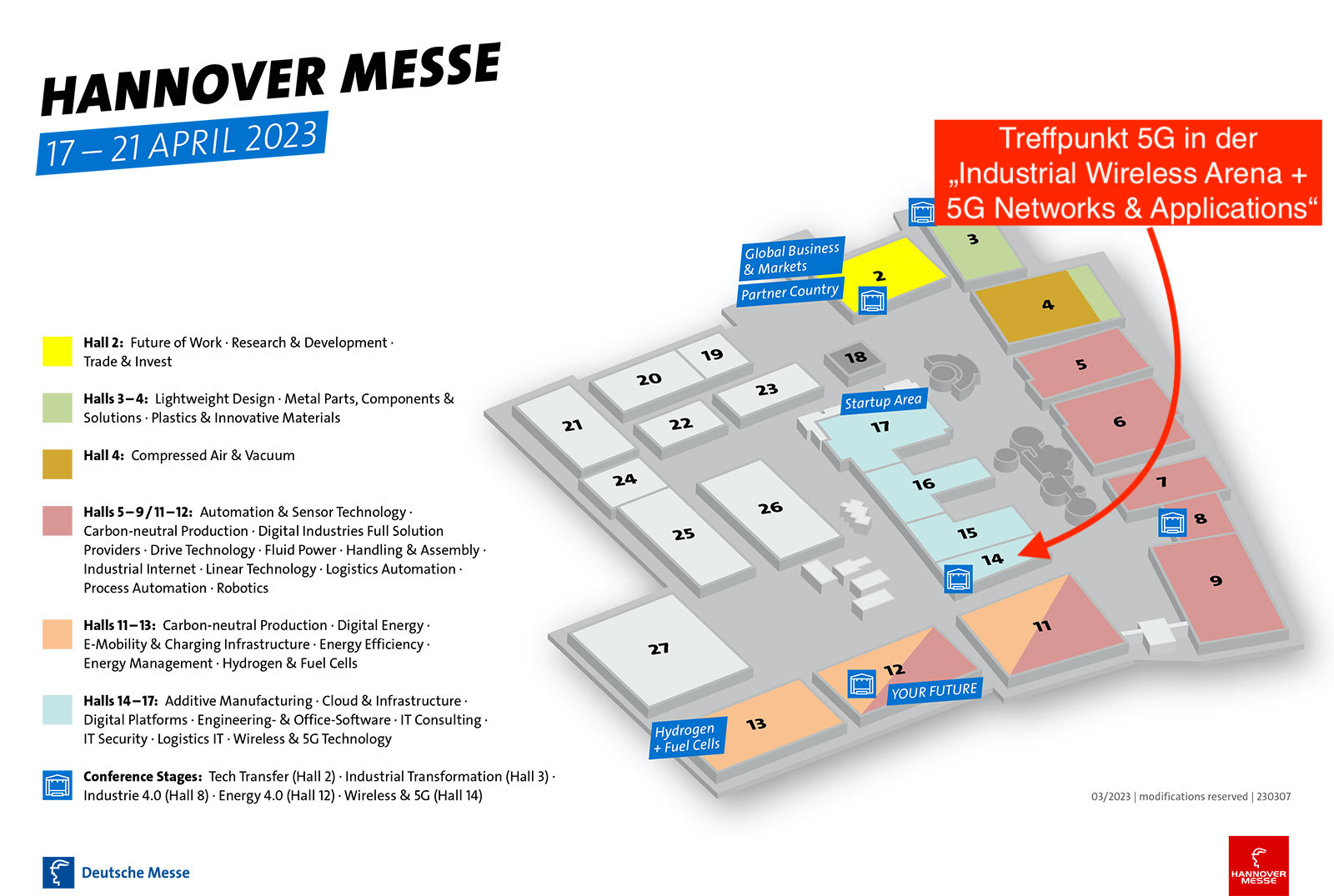The debate contribution “5G in industry” by Acatech Impuls shows, among other things, possible further steps for the comprehensive implementation of 5G in industry. (Image: Deutsche Akademie der Technikwissenschaften)
Many small and medium-sized industrial companies are still hesitant to deploy the 5G mobile communications standard in their own operations. The anticipated costs are too high, and the individual benefits are too little known. This is the conclusion of a project group led by Acatech member Jürgen Fleischer from the Karlsruhe Institute of Technology (KIT). In the debate paper Acatech Impuls “5G in der Industrie” (5G in industry), the experts give 5G options for action for science, industry and politics.
For many, the new fifth-generation mobile communications standard is the enabling technology for Industry 4.0. For example, analyzing the real-time work situation of an industrial robot from a distance works best with the help of a virtual reality application–but it is technically feasible in sufficient quality only with 5G.
In addition, 5G simplifies the networking of devices and machines and thus the collection of data and its evaluation with the help of artificial intelligence.
“5G is characterized by previously unknown response times, transferable data volumes and highly accurate localization. These advantages are insufficiently transparent today, so that industrial companies are not in a position to develop corresponding use cases and also to evaluate them financially. Therefore, the goal must be to bring 5G providers and industrial application domains together in a targeted manner to be able to leverage this enormous potential.”
Acatech member Jürgen Fleischer, Head of the Institute of Production Engineering (wbk) at KIT
In order to trigger a “5G avalanche” and promote the widespread introduction of this beneficial technology, the Acatech project group is therefore calling for lighthouse application examples to be developed together with companies. In this way, the concrete benefits of 5G in production–especially for SMEs–are to be demonstrated in a practical manner.
More digital sovereignty
5G represents a fundamental part of a country’s communications infrastructure. A wide range of business models can be built on the technology, for example in the area of platform-as-a-service or in the development of software for evaluating large volumes of data. However, the components for the 5G infrastructure currently come from only a few manufacturers: The three largest hardware producers, Huawei, Ericsson and Nokia, have a market share of over 75 percent.
As a result, the Acatech project group also inevitably associates the introduction of 5G with questions about the digital sovereignty of Germany and Europe. In order not to become too dependent on a few providers, the establishment of a standardized and open network architecture could make sense: With its help, vertical compatibility between different hardware manufacturers would be possible, which would also increase the security of the access networks.
Political focus required
Against this backdrop, politicians must also place the topic of 5G higher on the agenda, demands Fleischer. Their task is to enable the broadest possible access to the technology as well as sovereign handling of it, write the authors of the paper “5G in the Industry.” This contribution to the debate is the result of an Acatech project led by Jürgen Fleischer and Albert Albers (both from the Karlsruhe Institute of Technology), Reiner Anderl (Darmstadt University of Technology) and Jan Aurich (Kaiserslautern University of Technology) and describes the potential of 5G as well as possible obstacles to implementing the technology. Based on this, 5G options of action for science, industry and politics are derived. In order to obtain a comprehensive overview of the status of 5G implementation in product development and production in Germany, experts from various sectors of industry were interviewed as part of the project.
Here you can download the debate paper (German language) Acatech Impuls “5G in der Industrie – Wege in die Technologieführerschaft in Produktentwicklung und Produktion”.








Leave A Comment